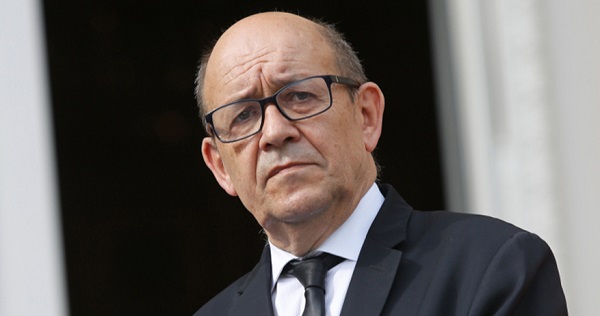International
France warns Iran of ‘red line’ over nuclear deal

As members of the European Union move to stress their commitment to upholding the nuclear pact, France has warned Iran that it risked sailing close to a “red line”.
The warning comes after Tehran informed the International Atomic Energy Agency (IAEA), the U.N. nuclear watchdog, that polices restrictions placed on its activities under the deal, of “tentative” plans to produce the feedstock for centrifuges.
In Paris on Wednesday, French Foreign Minister Yves Le Drian told Europe 1 radio that, while that initiative remained within the framework of the nuclear deal, it was unwelcome and risked sailing close to a “red line”.
Read Also: SUDAN: 19-yr-old sentenced to death for murdering husband who raped her
According to UN envoy, Iran will not cooperate more fully with atomic inspectors until a standoff over its nuclear deal is resolved.
Three days ago, Iran’s Foreign minister Mohammad Javad Zarif said the world must stand up against the bullying behaviour of the United State of America.
The comments were made by Zaif as he attempts to save a nuclear deal after Washington’s withdrawal last month.
In a letter to his US counterpart, Zaif asked “the remaining signatories and other trade partners” to “make up for Iran’s losses” caused by the US exit, if they sought to save the historic accord.
RipplesNigeria… without borders, without fears
Click here to join the Ripples Nigeria WhatsApp group for latest updates.
Join the conversation
Support Ripples Nigeria, hold up solutions journalism
Balanced, fearless journalism driven by data comes at huge financial costs.
As a media platform, we hold leadership accountable and will not trade the right to press freedom and free speech for a piece of cake.
If you like what we do, and are ready to uphold solutions journalism, kindly donate to the Ripples Nigeria cause.
Your support would help to ensure that citizens and institutions continue to have free access to credible and reliable information for societal development.
























